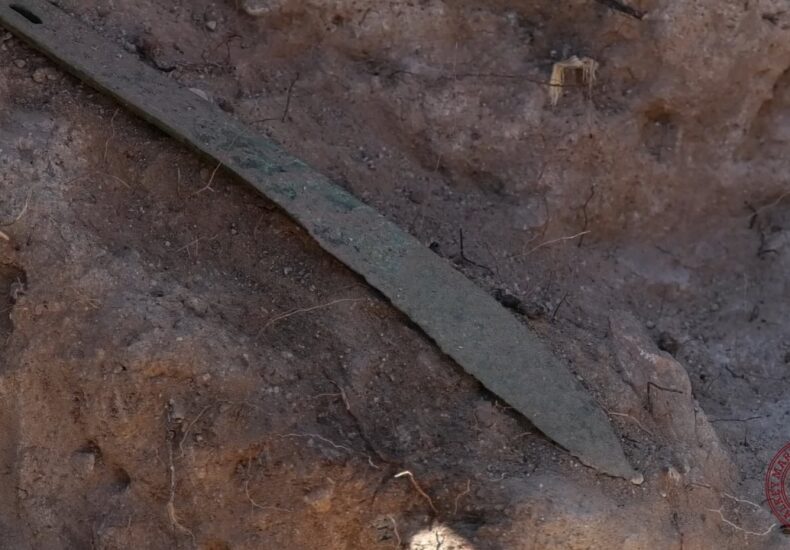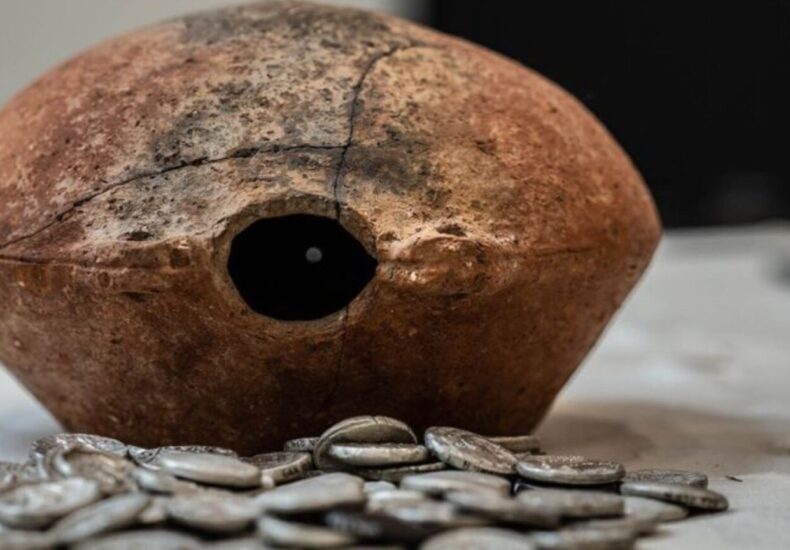
2,300-Year-Old Silver Coin Hoard Unearthed in Mleiha Reveals Arabia’s Role in Hellenistic Trade
A vase holding 409 ancient silver coin treasures linked to Alexander the Great reshapes the history of the Arabian Peninsula. A clay vase containing 409 silver coin tetradrachmas has been unearthed in Mleiha, Sharjah—one of the most remarkable Hellenistic finds in Arabia. The discovery connects the UAE directly to Alexander the Great’s legacy and ancient

Miniature Spearhead and Bronze Buckle Unearthed from the First Turkic Khaganate in Russia’s Altai
Archaeologists working in Russia’s Altai Republic have brought to light rare objects linked to the First Turkic Khaganate (6th–7th centuries CE), one of Central Asia’s earliest nomadic empires. The artifacts, uncovered during the Katanda-2025 International Expedition, provide valuable insights into ritual practices and material culture at the heart of the Eurasian steppe. Ritual Enclosures Yield

World’s Oldest Mummies May Be 12,000 Years Old, Discovered in Southeast Asia
A new study suggests smoke-dried mummification began 5,000 years earlier than previously thought. A groundbreaking study has uncovered evidence that the world’s oldest known mummies—dating back as far as 12,000 years—originated in southern China and Southeast Asia, challenging long-held beliefs that South America’s Chinchorro culture pioneered intentional mummification. Published this week in Proceedings of the
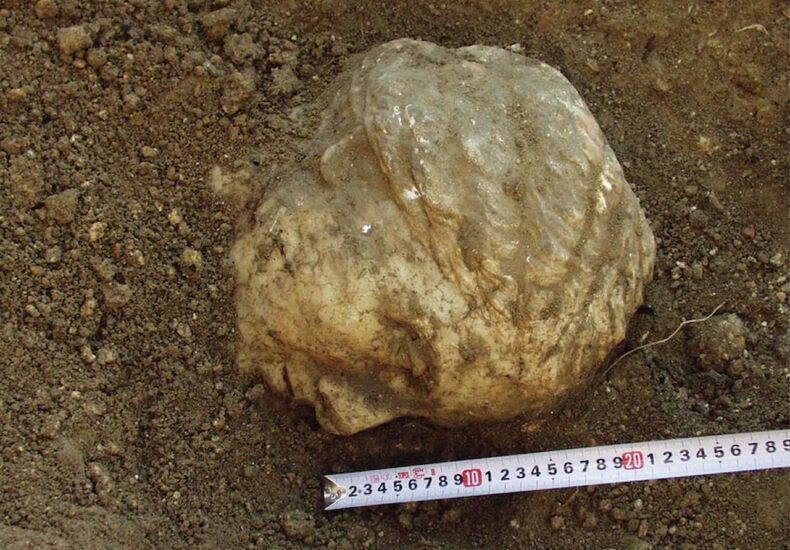
20-Year Mystery Solved: Marble Portrait in Crimea Identified as Laodice, the Woman Who Secured Her City’s Freedom
SEVASTOPOL, CRIMEA – A decades-old archaeological mystery has finally been solved: a striking marble head discovered in 2003 at the ancient Greek city of Chersonesus Taurica has been conclusively identified as Laodice, a prominent woman whose political influence helped the Black Sea city gain free status under Roman rule. A Sculpture With a Story The
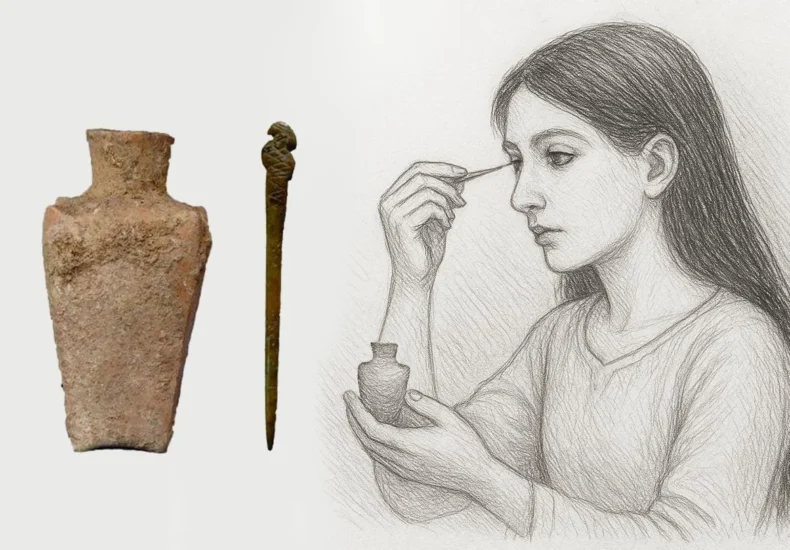
3,000-Year-Old Lead-Free Eyeliner Discovered in Iran Reveals Ancient Cosmetic Innovation
Archaeologists in northwestern Iran have uncovered a groundbreaking 3,000-year-old eyeliner made from natural minerals—without any lead—offering rare insight into the beauty rituals and technological sophistication of Iron Age societies. In a remarkable discovery from the Iron Age III period (7th–9th centuries BCE), researchers have identified an entirely lead-free eyeliner formula in the Kani Koter cemetery,

The Phaistos Disc: An Unsolved Mystery at the Heart of Minoan Civilization
Discovered over a century ago in the ruins of a Bronze Age palace on the island of Crete, the Phaistos Disc remains one of archaeology’s most intriguing enigmas. Etched with strange symbols arranged in a spiraling sequence, this small clay object continues to captivate researchers and enthusiasts alike with the promise of a lost language,

Ancient Tombs Dating Back Over 3,500 Years Discovered in Luxor, Egypt
Archaeological excavations in the southern Egyptian city of Luxor have led to the discovery of three ancient tombs dating back to the New Kingdom period (circa 1550 BCE). Located in the Dra Abu el-Naga necropolis on the west bank of the Nile, the tombs are believed to belong to high-ranking officials who played significant roles
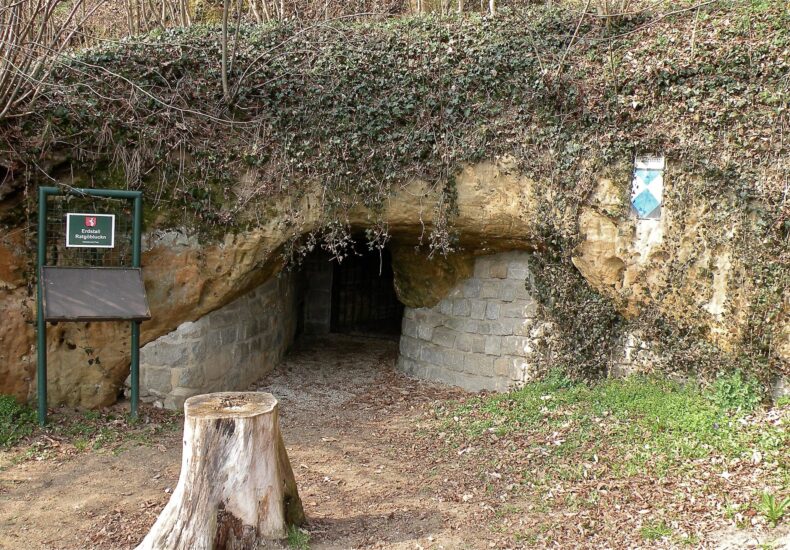
No Ancient Superhighway: Europe’s Erdstall and the Reality of the Scotland-Türkiye Tunnel
The internet continues to buzz with the fascinating concept of a vast, prehistoric tunnel network stretching from the Scottish Highlands across the European continent to Türkiye. This intriguing narrative, often shared on social media platforms like Instagram and Facebook, conjures images of a sprawling ancient world hidden beneath our feet. However, a closer examination of

First Mesolithic Human Figurine Found in Damjili Cave, Azerbaijan
The first human figurine dating back to the Mesolithic period has been discovered in the Damjili Cave in Gazakh, as announced by Doctor of History Yagub Mammadov, the head of the Azerbaijani-Japanese Damjili International Archaeological Expedition affiliated with the Institute of Archeology and Anthropology of the Azerbaijan National Academy of Sciences (ANAS), in a statement

